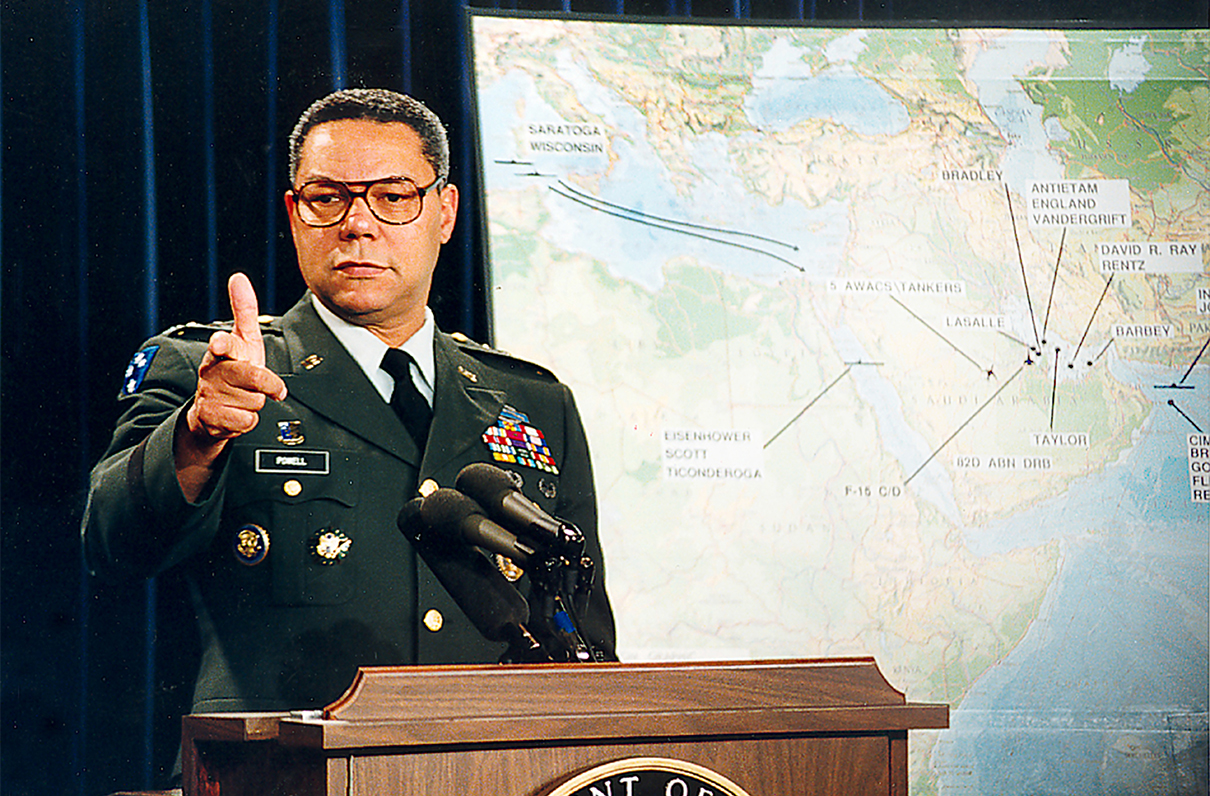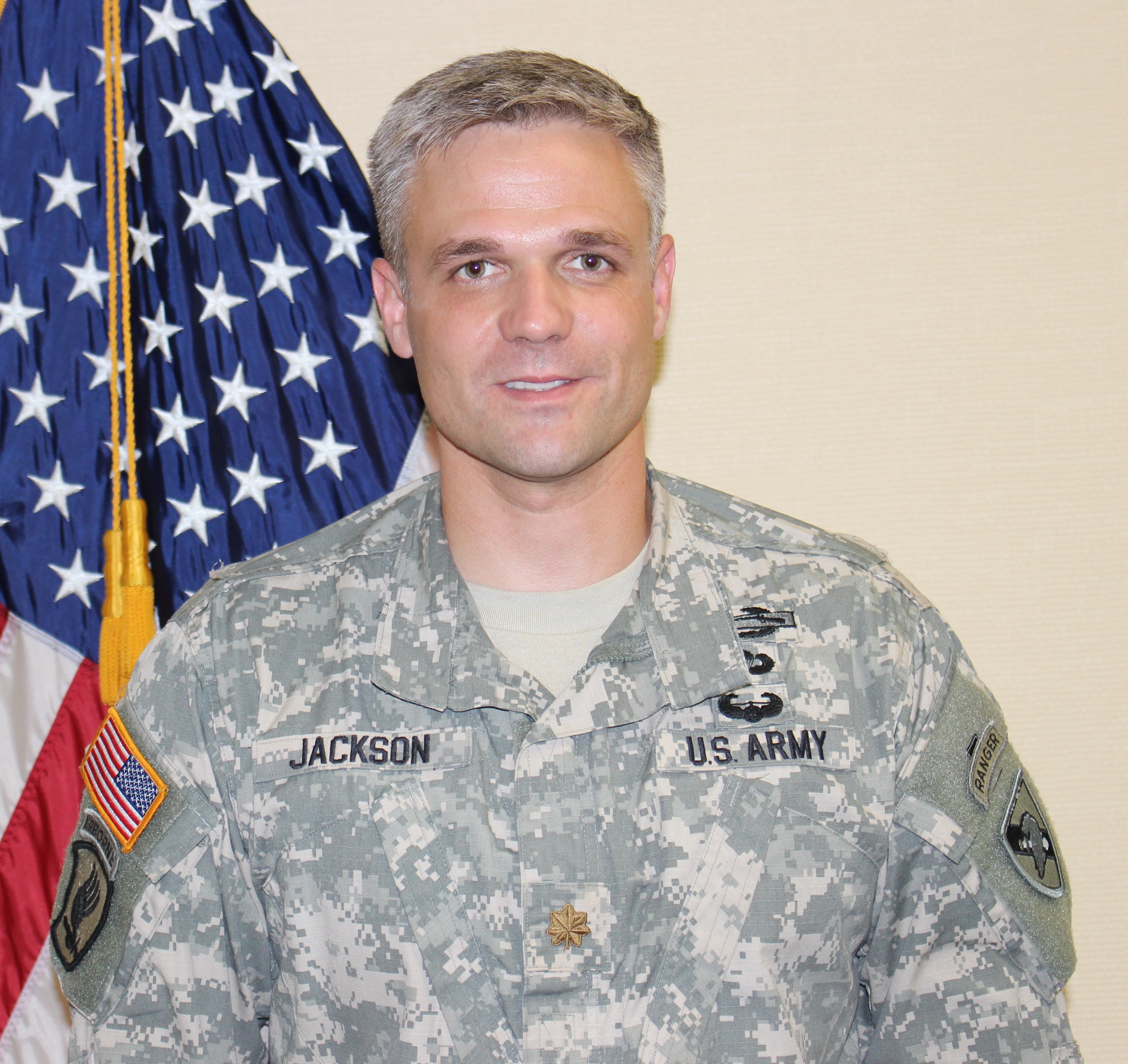When I was a cadet in the mid-to-late 1990s, the Powell Doctrine was essentially gospel at West Point. While WWI never lived up its moniker as the “War to End All Wars,” it seemed like Desert Storm might – not because it exposed the world to horrors that no rational human being would allow to happen again, but because it exposed the world to America’s unquestionable military dominance. It was an exquisite example of matching technological advancement, military innovation, and sound national policy to protect U.S. national security interests through the use of force. At the time, we believed that was how it would always be, that in the words of former President Bush the “new world order had begun.” Now, almost two decades and two wars later, I find myself torn on how to discuss the Powell Doctrine with my cadets – is it still a useful or even relevant way for junior officers to think about the U.S. Army as a global force prepared to win in an increasing complex world?
Don’t get me wrong, I still believe in the wisdom of the Powell Doctrine and think that America would be well advised to reintroduce it concepts into every policy discussion involving the potential commitment of our military forces. A couple of years ago, Stephen Walt from Harvard tried to do that in a Foreign Policy article titled “Applying the 8 Questions of the Powell Doctrine to Syria.” While much of the current public debate on when and how America should use its military still seems dominated by political rhetoric and posturing, he challenged us to think through the questions Collin Powell put forward back in 1990:
- Is a vital national security interest threatened?
- Do we have a clear attainable objective?
- Have the risks and costs been fully and frankly analyzed?
- Have all other nonviolent policy means been fully exhausted?
- Is there a plausible exit strategy to avoid endless entanglement?
- Have the consequences of our action been fully considered?
- Is the action supported by the American people?
- Do we have genuine broad international support?
Just as WWI and Desert Storm were not the “Wars to End All Wars,” nor were Operation Enduring Freedom in Afghanistan or Operation Iraqi Freedom. Another fight is coming.
If we, as a nation, answered those questions objectively and honestly before sending America’s sons and daughters into harm’s way, we would clearly be better off. However, being the basis of sound policy debate and being a valid way for the military to advise and ultimately constrain our civilian leaders are two very different things. That gets back to my original question and personal struggle – should we teach the Powell Doctrine as just a strategic framework that was used once and cast aside or is it still a useful or relevant way for junior officers to think about how this nation uses or should use its military?
I do want my cadets to understand the Powell Doctrine and to be able to apply it critically when they think through potential U.S. responses to any number of threats currently facing our nation. However, I do not want them to think that they live in a world where they will only be called on to fight for and potentially die for their country under conditions they chose. Just as WWI and Desert Storm were not the “Wars to End All Wars,” nor were Operation Enduring Freedom in Afghanistan or Operation Iraqi Freedom. Another fight is coming.
And that is at the crux of the true burden anyone from instructors at West Point and ROTC programs to Drill Sergeants at Basic Training bear – while we are responsible for preparing the next generation of Soldiers, we have no idea what their war will look like. I had some amazing mentors while I was a cadet at West Point, but in truth no one directly prepared me to be a platoon leader in Afghanistan responsible for missions from leading a Quick Reaction Force (QRF) to support international special operations forces in contact one day and using my squads to help train local police in Paktika the next or to be a company executive officer in Iraq fighting through Baghdad one day and working with a local mayor to hold the first ever city council elections along the border with Syria the next. But I do remember those officers who pushed me to challenge assumptions, to think critically, and to work through complex problems systematically. And that is the most we can do – physically, technically, tactically, and intellectually prepare our next generation of leaders to be as agile as possible.



Mike, great issue and nice articulation of the challenge to applying a previous doctrine in current times. I would offer that it is paramount that we continue to educate cadets on the principles of the Powell Doctrine — perhaps not stress the “Powell Doctrine” title, but the bullets you list are enduring questions for use of military force, in my opinion.
Although our current elected officials may not apply or answer these questions when determining to commit military forces, we, as professional military officers, should nevertheless be educated on these valuable pre-requisites in order to help inform/educate elected officials when given the opportunity. If these tenets are ingrained in junior officers in the same way as our Army values, we will grow a generation of officers that can give sound military advice to civilian leaders when called upon to do so, and in doing so, can educate those leaders on considerations for employing military power.
Mike, I wonder if there is enough critical thought given to limited objectives and the use of military force to achieve them. The Powell Doctrine is an awful lot of ‘all or nothing’ yet we need to recognize that plenty of positive impacts can be made by our military in partnership, policing, and assistance with foreign internal defense. I think there is a vision of some, both in the military and outside of it, that we should only use the military for an existential threat, and anything outside of that needs to absolutely fit the Powell Doctrine.
Communication with the American people is critical in any ‘foreign’ employment, and this seems to be an area where executive leaders have failed, and legislative officials have endorsed that failure through their own inaction. Perhaps the Powell Doctrine’s 8 questions should be used by senior leaders to judge the interest of political leaders, as well as their potential endorsement, for most overseas involvement, whether truly considered strategic in impact or otherwise. I think COL B states this as well, but I see it as a rubric for the broader utilization of military forces.
TankerSteve, concur with your assessment, particularly the use of the Powell Doctrine tenets as a rubric for use of military forces for military leaders to use with civilian masters.
Additionally, I think the Powell Doctrine is broader than these 8 questions and two other related points are worth discussion. First, these 8 questions are asked before military involvement to ensure a whole of government approach to the problem has been considered and that we, as a Nation, have exhausted the other instruments of national power before resorting to use of military force (the other parts of the DIME have not been successful). Second, as General Powell alluded to on several occasions, if you reach the point to decide to use military force, satisfying the 8 questions in advance will help ensure the military action is decisive, quick and successful. I have some hesitation with your thought on limited objectives, although they are very much a part of today’s environment, but if those limited objectives are properly defined and articulated, I believe this doctrine applies.
I think General Powell’s intended message of this doctrine (akin to Clausewitzian theory) was to our elected officials — deliberate carefully on use of military force, but once you make the decision, execute powerfully (use all means necessary) until objectives are satisfied then transition to a well-thought out follow-on governmental plan and exit military forces as swiftly as possible.